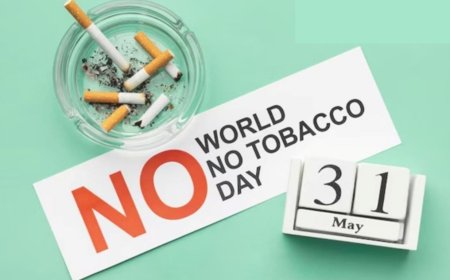Mark Rutte and NATO: Latest Developments and Insights

As global security dynamics continue to evolve, the role of NATO remains pivotal in shaping international peace and stability. Mark Rutte, the Prime Minister of the Netherlands, has been an influential voice within NATO, advocating for strategic alliances and collective defense. This article explores the latest news involving Mark Rutte and NATO, highlighting key developments, his contributions, and the broader implications for international security.
The Current State of NATO and Mark Rutte’s Role
NATO (North Atlantic Treaty Organization) has long been the cornerstone of Western security cooperation, with 31 member countries working together to address emerging threats. The Netherlands, under the leadership of Prime Minister Mark Rutte, has been a proactive participant, consistently reinforcing NATO’s core mission. Rutte's stance on defense spending, diplomatic engagement, and support for NATO's missions showcases his commitment to collective security.
Mark Rutte’s Recent Statements on NATO
In recent statements, Mark Rutte emphasized the importance of unity among NATO members in the face of geopolitical challenges. His key points include:
-
Increased Defense Spending: Advocating that all NATO members meet the 2% GDP defense spending target to ensure readiness and technological advancement.
-
Strategic Deterrence: Supporting enhanced deterrence measures in Eastern Europe to counter threats from Russia.
-
Cybersecurity Initiatives: Promoting investments in cybersecurity to protect critical infrastructure from growing digital threats.
Rutte’s leadership approach focuses on balancing military preparedness with diplomatic dialogue, aiming to maintain NATO's relevance amid shifting global power structures.
Latest NATO News Involving Mark Rutte
Recent NATO summits and meetings have placed Mark Rutte at the forefront of crucial discussions on alliance policies and strategic priorities. Here’s a breakdown of the key events and outcomes:
| Date | Event | Mark Rutte’s Role | Key Outcomes |
|---|---|---|---|
| July 2025 | NATO Leaders’ Summit in Brussels | Advocate for collective defense | Agreement on increased defense budgets and cybersecurity framework |
| June 2025 | NATO-Russia Council Meeting | Diplomatic engagement leader | Emphasis on dialogue but firm stance on sovereignty and territorial integrity |
| May 2025 | NATO Cybersecurity Forum | Speaker on cyber threats | Launch of new joint cybersecurity initiative among members |
These events highlight Rutte’s dual focus on strengthening NATO’s military capabilities and fostering diplomatic channels.
The Impact of Rutte’s Policies on NATO’s Future
Mark Rutte’s proactive policies contribute to shaping NATO’s strategic trajectory. His emphasis on modern threats such as cyber warfare and hybrid tactics positions NATO to better address 21st-century security challenges. Furthermore, his insistence on solidarity ensures that member states remain committed to collective defense, even as internal political pressures arise.
Priorities for NATO and the Netherlands under Mark Rutte
Below is a list of the top five priorities that Mark Rutte has outlined for NATO and the Netherlands in the coming years:
-
Meeting Defense Spending Targets
Ensuring that all member states allocate at least 2% of GDP to defense budgets. -
Enhancing Cyber Defense Capabilities
Investing in cybersecurity infrastructure to protect against cyberattacks. -
Strengthening NATO’s Eastern Flank
Supporting allies in Eastern Europe through increased military presence and training. -
Promoting Diplomatic Engagement
Balancing deterrence with dialogue to reduce the risk of escalation. -
Supporting Innovation and Technology
Encouraging the development and deployment of cutting-edge military technologies.
By focusing on these areas, Rutte aims to maintain NATO’s strategic edge and enhance the Netherlands' role within the alliance.
Mark Rutte’s NATO Priorities vs. NATO’s Strategic Goals
| NATO Strategic Goals | Mark Rutte’s Priorities | Synergies and Focus Areas |
|---|---|---|
| Collective Defense | Meeting Defense Spending Targets | Stronger military funding and readiness |
| Cyber Defense | Enhancing Cyber Defense Capabilities | Improved cybersecurity and resilience |
| Strategic Deterrence | Strengthening NATO’s Eastern Flank | Bolstered presence in high-risk regions |
| Diplomatic Stability | Promoting Diplomatic Engagement | Peaceful conflict resolution and crisis management |
| Innovation and Technology | Supporting Innovation and Technology | Adoption of advanced military tech |
Conclusion: The Significance of Mark Rutte’s Leadership in NATO Today
Mark Rutte’s leadership within NATO is a testament to the Netherlands’ commitment to global security and alliance solidarity. His advocacy for increased defense spending, cybersecurity, and diplomatic engagement addresses the multifaceted challenges NATO faces today. As geopolitical tensions persist, Rutte’s balanced approach serves to strengthen NATO’s unity and operational effectiveness.
Looking ahead, the continued cooperation between Mark Rutte and NATO members will be crucial for sustaining peace, deterring aggression, and responding to emerging threats worldwide. The Netherlands, under his guidance, remains a steadfast partner in upholding the principles of collective defense and international cooperation.





























